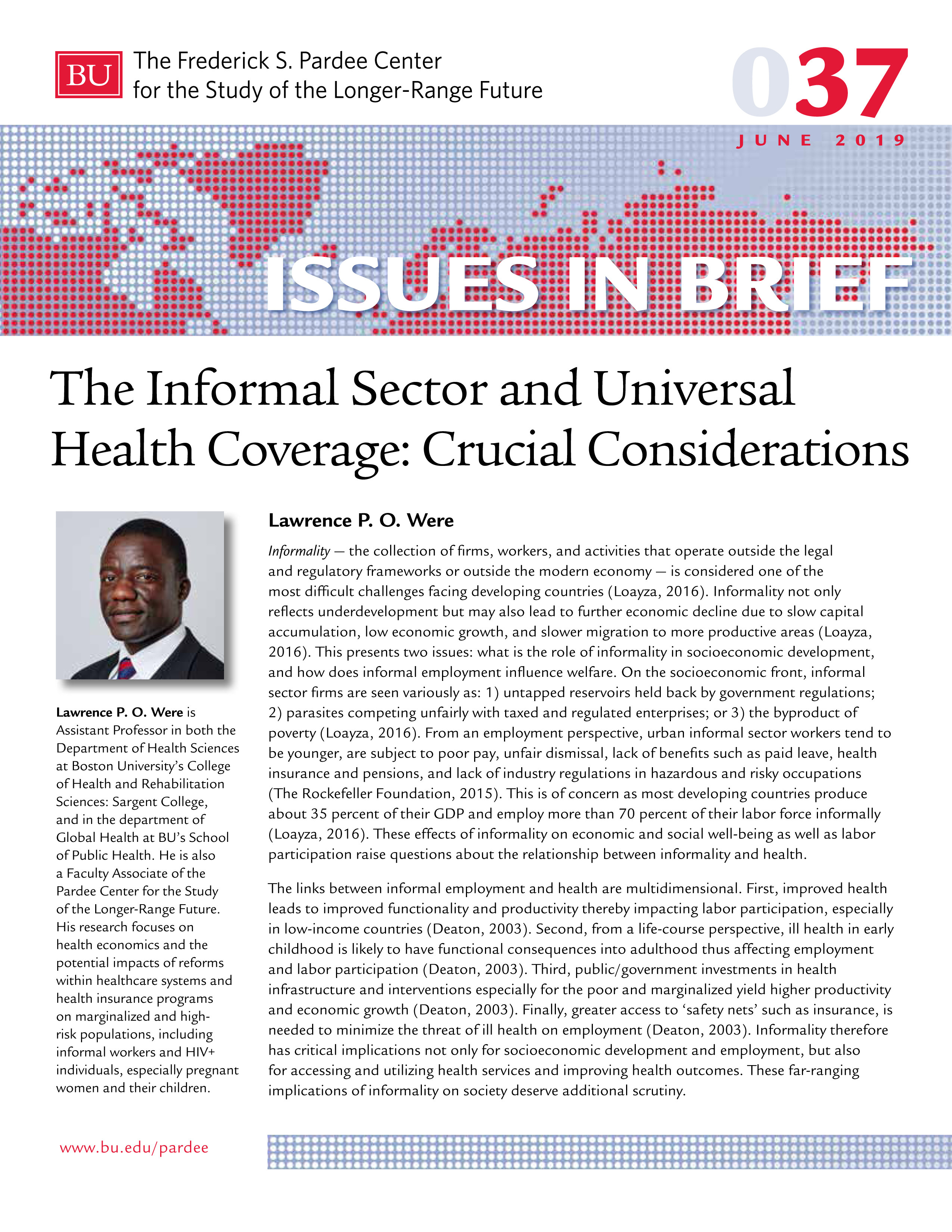Issues in Brief, No. 37, June 2019
The Informal Sector and Universal Health Coverage: Crucial Considerations
 By Lawerence P. O. Were
By Lawerence P. O. Were
June 2019 (8 Pages)
Download PDF
Informal employment operating outside the legal and regulatory frameworks of the modern economy is a major challenge across the developing world, resulting in poor pay, lack of benefits, and lack of industry regulations. In particular, informality has critical implications for access to health insurance and to quality, affordable care. In this Issues in Brief, Lawrence Were focuses on Kenya, where the informal sector accounts for 34 percent of GDP and 74 percent of employment, to better understand the confluence between informality and health. He concludes that Kenya and other developing countries must better measure the impacts of the informal sector on health insurance coverage, in particular, and better support research and innovation to achieve the third Sustainable Development Goal (SDG 3) calling for universal health coverage for all by 2030.
Lawrence P. O. Were is Assistant Professor in both the Department of Health Sciences at Boston University’s College of Health and Rehabilitation Sciences: Sargent College, and in the department of Global Health at BU’s School of Public Health. He is also a Faculty Associate at the Frederick S. Pardee Center for the Study of the Longer-Range Future. His research focuses on health economics and the potential impacts of reforms within healthcare systems and health insurance programs on marginalized and high-risk populations, including informal workers and HIV+ individuals, especially pregnant women and their children.